 Linux 6.12 has been released during the past week-end, pretty much as expected after 7 release candidates. As usual, we recommend our readers to go through the amazing LWN.net articles covering the 6.12 merge window (part 1, part 2) to get a high-level overview of the major new features and improvements in this 6.12 release. One of the prominent improvement in this release, as far as the embeded industry is concerned, is obviously the merge of the final bits enabling PREEMPT_RT… which already caused our Real-Time Linux with PREEMPT_RT training course to be updated.
Linux 6.12 has been released during the past week-end, pretty much as expected after 7 release candidates. As usual, we recommend our readers to go through the amazing LWN.net articles covering the 6.12 merge window (part 1, part 2) to get a high-level overview of the major new features and improvements in this 6.12 release. One of the prominent improvement in this release, as far as the embeded industry is concerned, is obviously the merge of the final bits enabling PREEMPT_RT… which already caused our Real-Time Linux with PREEMPT_RT training course to be updated.
As usual, Bootlin again contributed to this release: with 118 commits merged, we are again in the top 20 contributing companies! Also, in addition to contributing our own code, several of our engineers are also maintainers, and as part of this work those engineers review and merge patches from other contributors. As part of this effort, for this 6.12 release:
- Alexandre Belloni, as the RTC and I3C subsystems maintainer, merged 29 patches from other contributors
- Miquèl Raynal, as the MTD subsystem co-maintainer, merged 24 patches from other contributors
- Grégory Clement, as the Marvell platform maintainer, merged 4 patches from other contributors
Overall, 13 active Bootlin engineers made contributions to this release, which on a total staff of 24 people, means that more than half of our team has contributed to the Linux kernel for 6.12, a good indication of our strong focus on Linux kernel development and upstreaming!
Continue reading “Linux 6.12 released, Bootlin contributions inside”


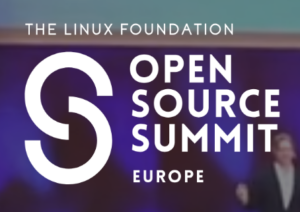
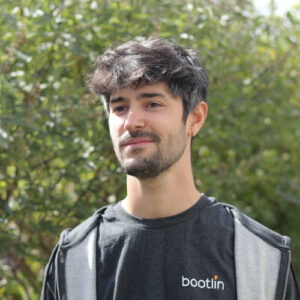 After
After 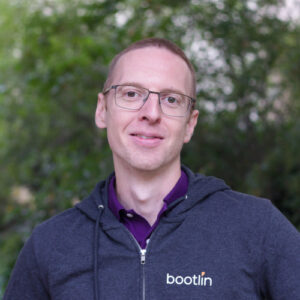
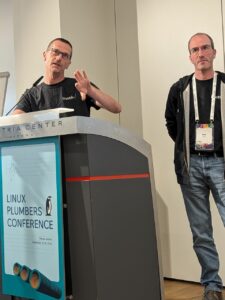 After the participation of 13 Bootlin engineers to
After the participation of 13 Bootlin engineers to 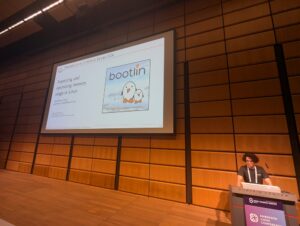 No less than 13 Bootlin engineers attended the
No less than 13 Bootlin engineers attended the